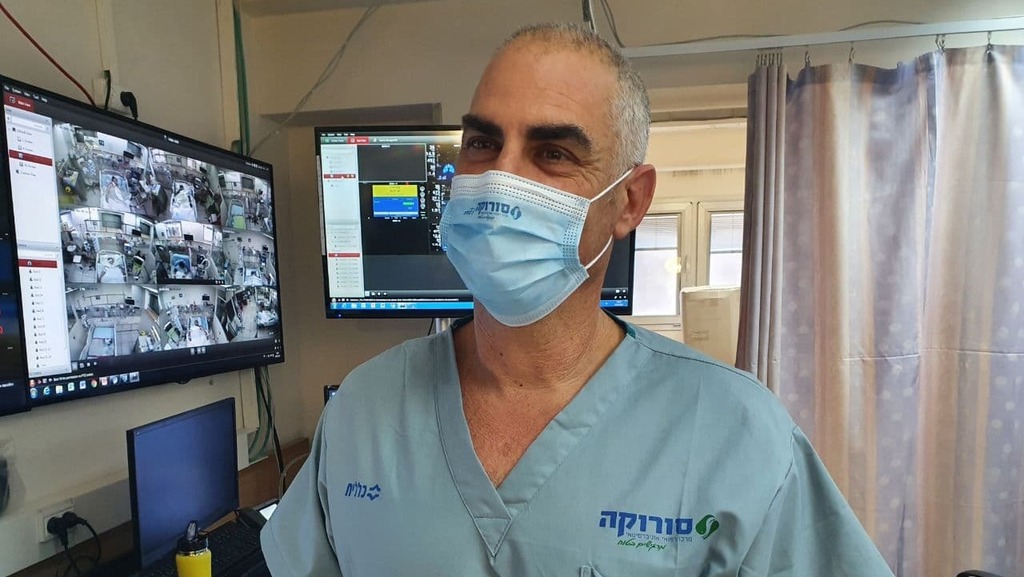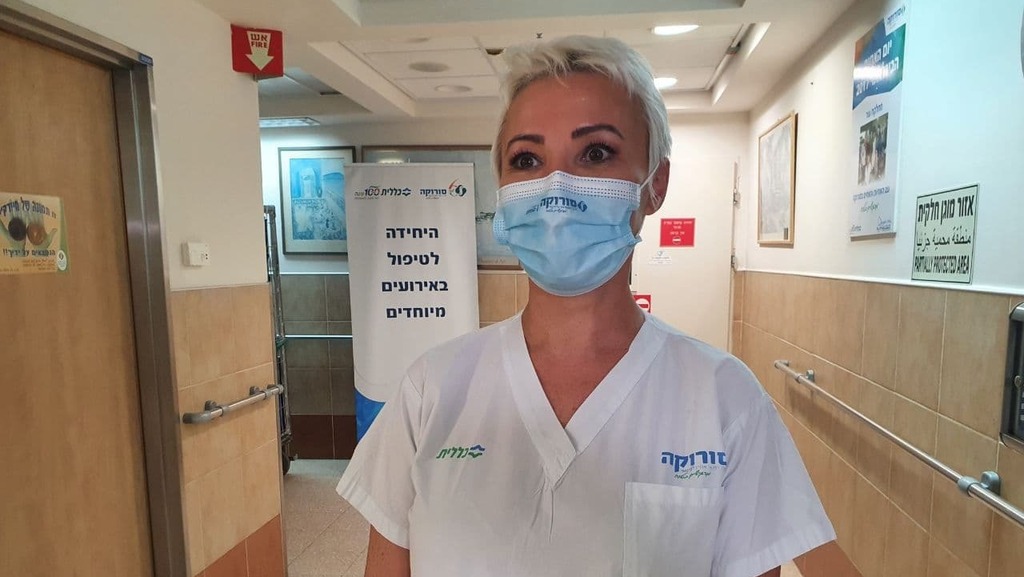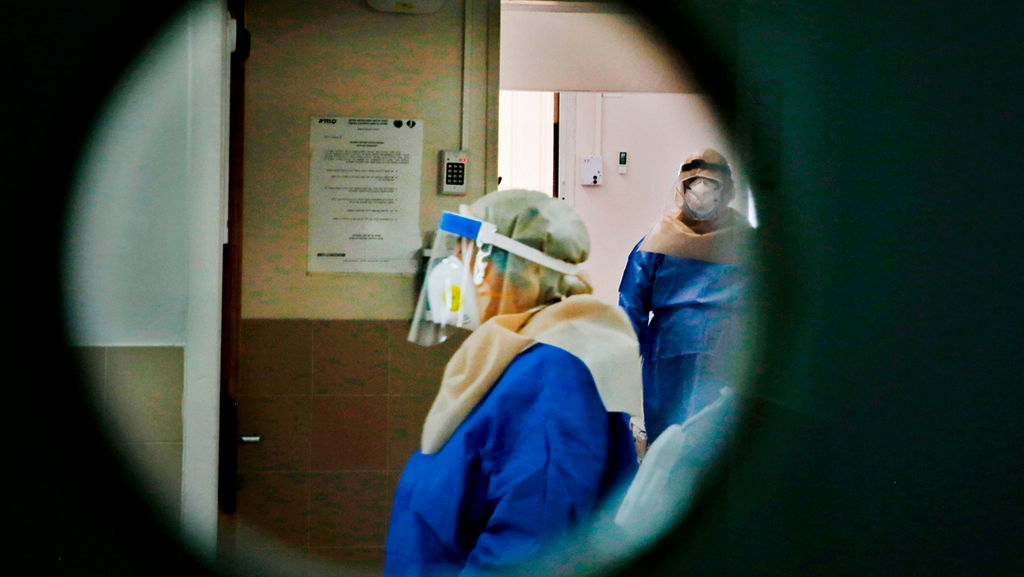Getting your Trinity Audio player ready...
As Israel rushes to vaccinate its population against the coronavirus and with health funds calling on increasingly younger citizens to receive the first dose of the vaccine, the alarming rate of the virus spread is putting unbearable stress on the country's hospitals.
One such hospital is Soroka Medical Center in Be'er Sheva, the only facility in the south of the country that provides service to millions of Israelis, which is buckling under the weight of severe COVID-19 cases.
For the Soroka staff, seeing patients deteriorate quickly, the growing number of younger patients in serious condition and the difficulty families face when they cannot see their dying loved ones are all taking an emotional toll.
There are currently 54 patients in three coronavirus dedicated wards at the hospital. Fourteen are in intensive care, with 12 of them on ventilators or heart and lung machines.
New patients are being referred to medical centers elsewhere because of a shortage of staff and ICU beds, adding to the distress some families are already experiencing.
"We are in the midst of the third and most difficult wave since the coronavirus pandemic broke last year," Dr. Uri Galanta, a senior doctor in the intensive care unit tells Ynet.
3 View gallery


Dr. Uri Galanta, a senior doctor at the Soroka Medical Center's ICU for COVID-19 patients
(Photo: Barel Efraim)
"The number of admissions with COVID-19 is increasing and our ICU is treating four times the number of patients compared with earlier waves," he says, adding that the third lockdown imposed at the beginning of January has not yet impacted on morbidity.
According to the hospital's records over the past week, 350 people were treated for respiratory difficulties in the emergency room and more than 16,000 coronavirus tests were conducted - showing an 8% positivity rate.
"We hope to see the effects of the country's vaccination drive in a month or so," Galanta says, "and a drop in the number of critically ill patients soon after that."
"This is not an old people's problem," he says. "Most of our patients are in the 40-60 age group and do not suffer from underlying conditions at all.
"Only people who are overweight have increased risk from COVID-19 but we cannot say that perfectly healthy people cannot develop a serious illness," Galanta says.
"We are losing more patients as well," he says. "More than 20 people die each day in Israel from complications of the virus."
3 View gallery


Ilana Fuchis, the head nurse at the Soroka ICU treating COVID-19 patients
(Photo: Barel Efraim)
Ilana Fuchis, a 29-year nursing veteran, is the head nurse of the ICU unit and has been leading the nursing staff there for the past 10 months.
"The ICU staff is used to winning. We know how to fight for every patient all day, every day and before the pandemic our death rate in the ICU was very low," she says.
"Now our death rate is up and still rising and that has an adverse effect on the nursing staff and on motivation," Fuchis adds.
"Its tough to work in protective gear when administering life support," she says.
"Everything we do is harder. But we are optimistic that with vaccines being administered, we could soon see a light at the end of the tunnel."


